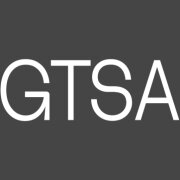Best Financial Services Regulation Lawyers in Malacca
Share your needs with us, get contacted by law firms.
Free. Takes 2 min.
List of the best lawyers in Malacca, Malaysia
About Financial Services Regulation Law in Malacca, Malaysia
Financial Services Regulation in Malacca, Malaysia, is governed by a framework that aims to ensure a stable and transparent financial system. This regulatory system covers banking, insurance, securities, and non-bank financial institutions, with the overarching goal of protecting consumers and maintaining market integrity. Regulatory compliance is overseen by several authorities, including Bank Negara Malaysia (BNM) and the Securities Commission Malaysia (SC). These bodies enforce a wide range of laws that require financial activities to be conducted with transparency and accountability.
Why You May Need a Lawyer
Legal assistance might be necessary for several reasons related to Financial Services Regulation:
- Compliance Issues: Companies need to ensure continued compliance with evolving regulations, which may require legal interpretation and advice.
- Dispute Resolution: Conflicts may arise between financial institutions and consumers or between competitors, needing legal resolution.
- Licensing and Permits: Financial service providers must obtain the necessary licenses, a process that a lawyer can facilitate.
- Regulatory Investigations: Firms may be subject to investigations by regulatory bodies, requiring legal representation.
- Corporate Transactions: Mergers, acquisitions, and other transactions involving financial institutions often demand legal oversight to manage compliance and due diligence.
Local Laws Overview
Several key legal frameworks govern financial services in Malacca:
- The Financial Services Act 2013 (FSA): Regulates financial institutions and promotes financial stability.
- The Islamic Financial Services Act 2013 (IFSA): Encompasses the operation and regulation of Islamic financial institutions.
- The Capital Markets and Services Act 2007 (CMSA): Covers activities related to securities and futures markets.
- The Anti-Money Laundering, Anti-Terrorism Financing and Proceeds of Unlawful Activities Act 2001 (AMLA): Aimed at preventing money laundering activities.
Understanding these laws is essential for any entity engaged in financial services, ensuring adherence to all required regulatory standards.
Frequently Asked Questions
What are the main regulatory bodies overseeing financial services in Malaysia?
The main regulatory bodies are Bank Negara Malaysia (central bank) and the Securities Commission Malaysia. They oversee different segments of financial services to ensure compliance with national laws.
Do small businesses in the financial sector need to comply with the same regulations as large institutions?
Yes, all enterprises, regardless of size, must adhere to applicable regulations. However, specific requirements may vary based on the scale and scope of their financial operations.
How can I know if a financial service entity in Malacca is licensed?
You can verify the licensing of an entity by checking with Bank Negara Malaysia or the Securities Commission Malaysia, both of which maintain a registry of authorized organizations.
Is Islamic finance regulated differently than conventional finance in Malaysia?
Yes, Islamic finance is governed by the Islamic Financial Services Act 2013, which sets certain conditions that are distinct from conventional financing practices to align with Sharia principles.
What are the common penalties for non-compliance with financial regulations?
Penalties can range from fines and sanctions to revocation of licenses. More severe violations may lead to legal action against the entities or individuals involved.
Can a foreign company provide financial services in Malacca?
Foreign companies can offer financial services in Malacca but must comply with local laws and often require licenses issued by the relevant Malaysian authorities.
What recourse do consumers have if they have a complaint against a financial service provider?
Consumers can file complaints with Bank Negara Malaysia or bring cases to the Financial Ombudsman Scheme for resolution.
Are there any taxes specific to financial service providers in Malaysia?
Yes, financial institutions may be subject to specific taxes or fees as part of their regulatory obligations, which can vary depending on the type and volume of business activity.
How does Malaysia monitor money laundering activities?
Money laundering is monitored under the Anti-Money Laundering, Anti-Terrorism Financing and Proceeds of Unlawful Activities Act 2001, requiring institutions to report any suspicious activities.
What happens during a regulatory investigation?
During an investigation, regulatory authorities will review the entity's compliance with applicable laws, which may involve examining documents, interviewing employees, and assessing business practices.
Additional Resources
For more information and assistance, consider consulting the following resources:
- Bank Negara Malaysia: The central regulatory body for financial service providers.
- Securities Commission Malaysia: Governs the securities and futures markets.
- Financial Mediation Bureau: Offers dispute resolution in financial services.
- Malaysian Bar Council: Provides resources for finding legal practitioners specializing in financial services regulation.
Next Steps
If you require legal assistance in Financial Services Regulation in Malacca, consider the following steps:
- Consult with a legal professional specializing in financial services.
- Gather all relevant documentation, including contracts, permits, licenses, and correspondence with regulatory bodies.
- Consider reaching out to one of the recommended regulatory bodies or professional organizations for guidance.
- Schedule a legal consultation to discuss your specific situation and explore your options for compliance or dispute resolution.
Lawzana helps you find the best lawyers and law firms in Malacca through a curated and pre-screened list of qualified legal professionals. Our platform offers rankings and detailed profiles of attorneys and law firms, allowing you to compare based on practice areas, including Financial Services Regulation, experience, and client feedback.
Each profile includes a description of the firm's areas of practice, client reviews, team members and partners, year of establishment, spoken languages, office locations, contact information, social media presence, and any published articles or resources. Most firms on our platform speak English and are experienced in both local and international legal matters.
Get a quote from top-rated law firms in Malacca, Malaysia — quickly, securely, and without unnecessary hassle.
Disclaimer:
The information provided on this page is for general informational purposes only and does not constitute legal advice. While we strive to ensure the accuracy and relevance of the content, legal information may change over time, and interpretations of the law can vary. You should always consult with a qualified legal professional for advice specific to your situation.
We disclaim all liability for actions taken or not taken based on the content of this page. If you believe any information is incorrect or outdated, please contact us, and we will review and update it where appropriate.









